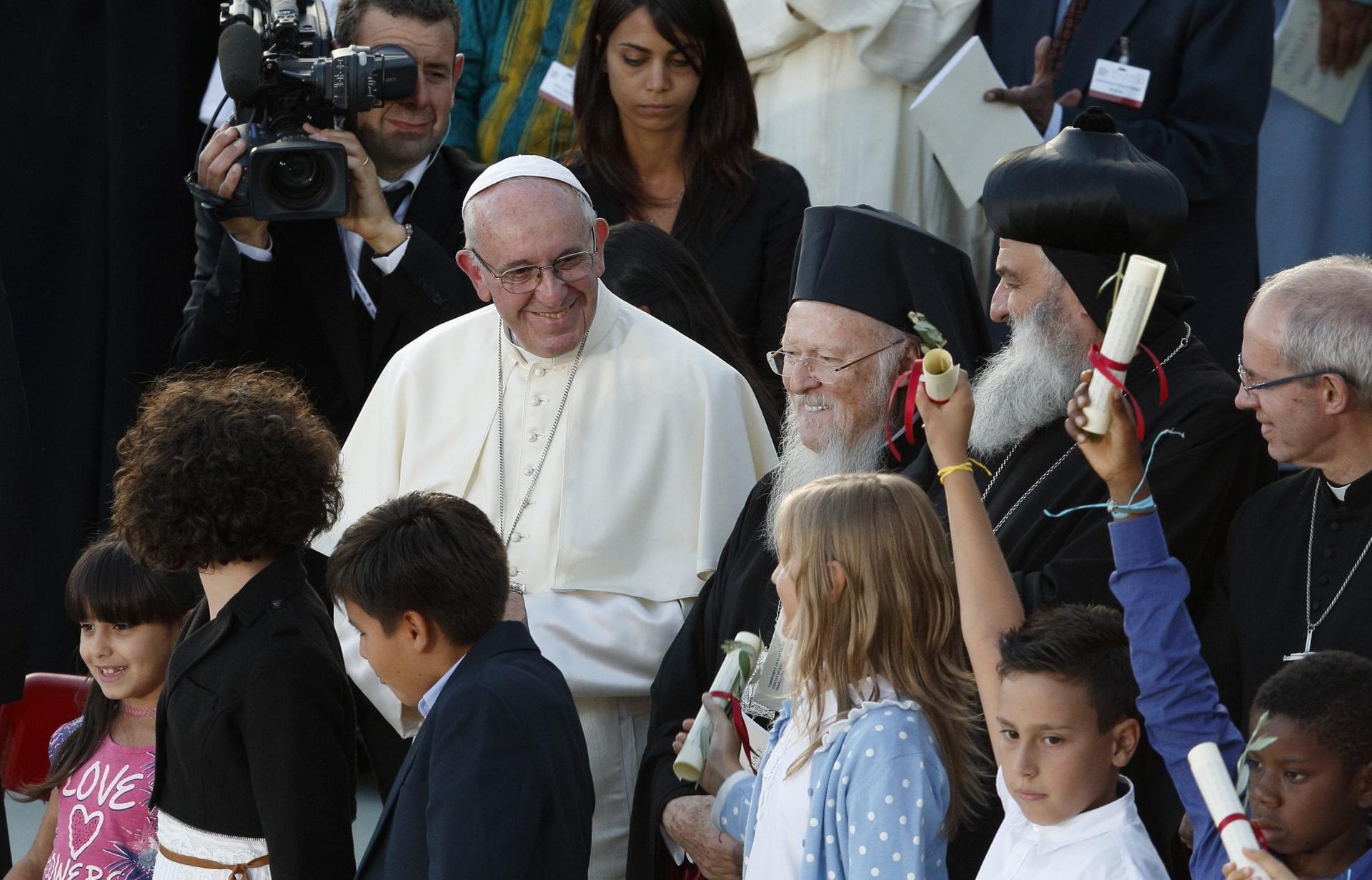ROME – With peace in the Middle East as the goal, Pope Francis on Saturday will host an ecumenical prayer in the southern Italian city of Bari to be attended by the representatives of the Christian churches with a presence in the region, including the Russian Orthodox Church.
The pilgrimage to Bari, an ecumenical city par excellence due to the presence of the remains of St. Nicholas of Bari, venerated both by Catholics and Orthodox, has the motto of “Peace be upon you! Christians together for the Middle East.”
“[Francis] has always had gestures of friendship, welcoming, openness, of bringing walls down with the Oriental and Orthodox patriarchs,” said Argentine Cardinal Leonardo Sandri, who heads the Vatican’s Congregation for Oriental Churches.
“He’s been close to them also through the term he’s coined of an ‘ecumenism of blood’,” Sandri said at a press conference held in Rome on Tuesday. “There’s a long way still for the unity of the Church, but we are already united through these martyrs that Catholics and Orthodox share.”
Speaking about victims of terrorism and violence, Sandri said that they are not “chosen: everyone is affected.”
“When God’s name, peace, is desecrated, the victims are Christians, Muslims, Yazidis and people of other religions,” he said.
The scope of the event is for the Christian leaders to come together to pray for a region that, due to ongoing conflicts and persecution, is seeing the Christian population diminishing year after year.
“The Middle East, a land of origins, is one of the regions of the world where the situation of Christians is most precarious,” said Cardinal Kurt Koch of Switzerland, head of the Vatican’s office dedicated to promoting Christian Unity.
Speaking to journalists on Tuesday, the prelate noted that while Christians represented 20 percent of the population in the region before World War I, today they are only four percent in this “martyred region.”
As an example, in Iraq alone, the number of Christians has gone from 1.5 million in 2003 to an estimated 300,000 today.
According to Koch, Christians will only remain in the region if peace is restored, and this is one reason why the Catholic Church has always worked for peace, particularly a peace achieved through political solutions.
“It’s not possible to imagine a Middle East without Christians, not only for political reasons, but because they are essential for the equilibrium of the region,” Koch said.
Among the Christian leaders who answered Pope Francis’s call are the heads of Orthodox churches, Oriental Orthodox churches, the Assyrian Orthodox Church, members of Catholic Oriental churches, a representative for the Lutheran Church, and one for the Middle East Council of Churches.
A majority of the 19 leaders attending are patriarchs or heads of churches. Only five are sending a representative, including the Russian Orthodox Church and the Catholic Melkite Patriarchate of Antioch.
Despite signs of rapprochement in recent years, including a historic first meeting with the head of the Catholic Church, the intention of the prayer service and the importance of Bari as a pilgrimage site for his own faithful, Russian Orthodox Patriarch Kirill will not attend the gathering. However, he is sending his right-hand man, Metropolitan Hilarion of Volokolamsk, as his representative.
RELATED: In Bari, Francis to extend his push for an ‘ecumenism of friendship’
If Kirill had accepted the invitation, it would have been the second time the leaders of Western and Eastern Christianity have met, following a landmark meeting in Cuba as the pope was headed to Mexico in 2016.
Among the recent signs of détente is the fact that last April, after a bombing carried out by the United States, United Kingdom and France targeting military compounds that reportedly contain chemical weapons, Kirill himself called Francis, worried about the latest developments in the Syrian war.
“We have come forward with this initiative knowing that the Christians cannot remain on the sidelines seeing what is happening in Syria,” Kirill had told reporters. “Ours was a significant peacemaking dialogue.”
He also said that the two Christian leaders hope to see an end to the “bloodshed” in Syria.
“We spoke about how Christians should influence events with the scope of putting an end to the violence, ending the war, preventing even more victims,” Kirill said.
Answering questions from journalists, Koch said that Kirill’s call to Francis in April “is not the cause” for Saturday’s meeting.
According to Sandri, the idea has been in the works for some time and comes from requests Francis received from the various churches or patriarchs from the Middle East.
Bari is considered a holy city for the Eastern European churches because of the basilica dedicated to Nicholas, known to many as the saint who gives gifts to children on Christmas. Children around the world call him Santa Claus.
This is not Francis’s first prayer initiative for peace in the Middle East.
In Sept. 7, 2013, he called for a day of prayer and fasting for peace in Syria. In 2014, he led an interreligious prayer for peace that included Israeli President Shimon Peres and his Palestinian counterpart, Mahmoud Abbas, who’d come to the Vatican to pray for peace in the region.
The pontiff has also called on Christians from all over the world to join the initiative by praying from where they are. He asked for this both after his weekly Sunday Angelus prayer in St. Peter’s Square and through his twitter account, that reaches over 40 million people in various languages.
I ask all of you to join me in prayer as I travel to Bari on Saturday on a pilgrimage to pray for peace in the long-suffering Middle East.
— Pope Francis (@Pontifex) July 1, 2018
The meeting will be divided into two moments: a public prayer, that will include singing in Arabic and Aramaic, and a private encounter among the church leaders and patriarchs.












